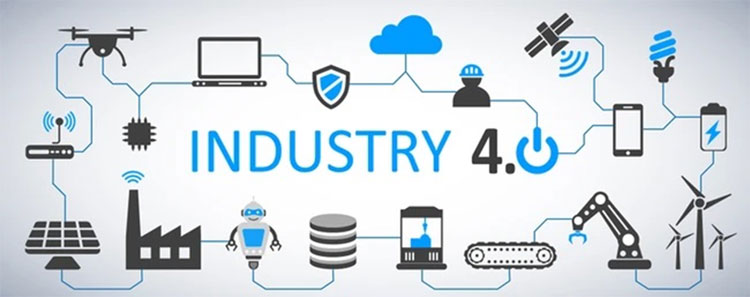
Industry 4.0
Welcome to the era of Industry 4.0, where digitalization and automation are revolutionizing the WAY, we do business. Industry 4.0, also known as the Fourth Industrial Revolution, represents a significant shift in manufacturing and production, driven by advancements in technology such as the Internet of Things (IoT), artificial intelligence (AI), robotics, and big data analytics.
At its core, Industry 4.0 aims to create smart, interconnected systems that enhance efficiency, productivity, and flexibility across various industries. From predictive maintenance and real-time monitoring to personalized production and supply chain optimization, the possibilities are endless.
By leveraging Industry 4.0 technologies, businesses can streamline operations, reduce costs, and deliver better products and services to customers. Whether you're a small startup or a large multinational corporation, embracing Industry 4.0 is essential for staying competitive in today's fast-paced market.
Key features of Industry 4.0 include:
- Interconnectivity: Machines, devices, and sensors are interconnected, enabling seamless communication and data exchange in real-time. This connectivity facilitates better decision-making and process optimization.
- Data Analytics: The abundance of data generated by interconnected systems is analyzed to gain valuable insights, predict trends, and improve operational efficiency. By harnessing the power of big data analytics, businesses can make informed decisions and drive innovation.
- Automation and Robotics: Automation plays a crucial role in Industry 4.0, with robots and autonomous systems performing repetitive tasks with precision and speed. This not only frees up human resources for more strategic roles but also enhances productivity and quality.
- Smart Manufacturing: Industry 4.0 enables the creation of smart factories where production processes are fully digitized and interconnected. From smart sensors and digital twins to autonomous production lines, smart manufacturing transforms traditional factories into agile and adaptive environments.
- Cyber-Physical Systems: Cyber-physical systems integrate physical components with digital technologies, blurring the lines between the physical and virtual worlds. This integration enables real-time monitoring, control, and optimization of physical processes, leading to greater efficiency and flexibility.
Embracing Industry 4.0 is not just about adopting new technologies; it's about transforming your business processes, culture, and mindset. It requires a strategic approach, investment in talent and resources, and a willingness to adapt to change.
At Robmove, we help businesses navigate the complexities of Industry 4.0 and unlock their full potential. From digital transformation strategies to implementation support, we partner with our clients to drive innovation and achieve sustainable growth in the digital age.
Join us in embracing Industry 4.0 and shaping the future of manufacturing and beyond. Contact us today to learn more about how we can help your business thrive in the Fourth Industrial Revolution.